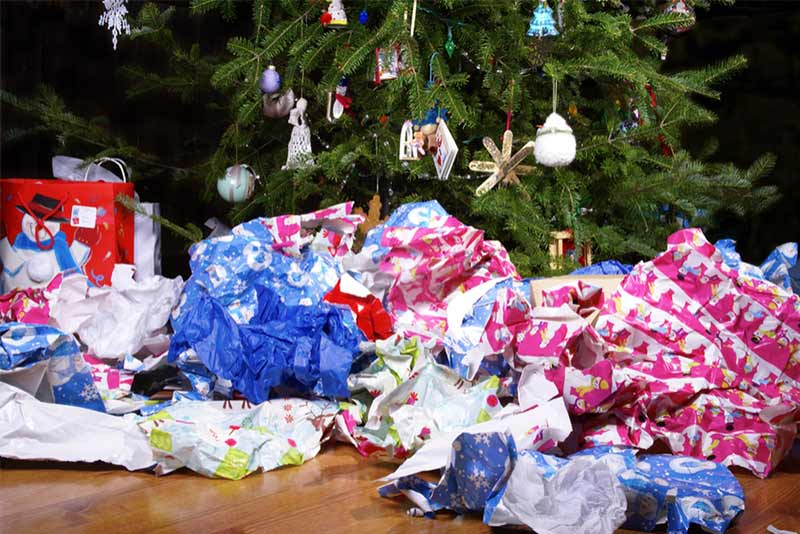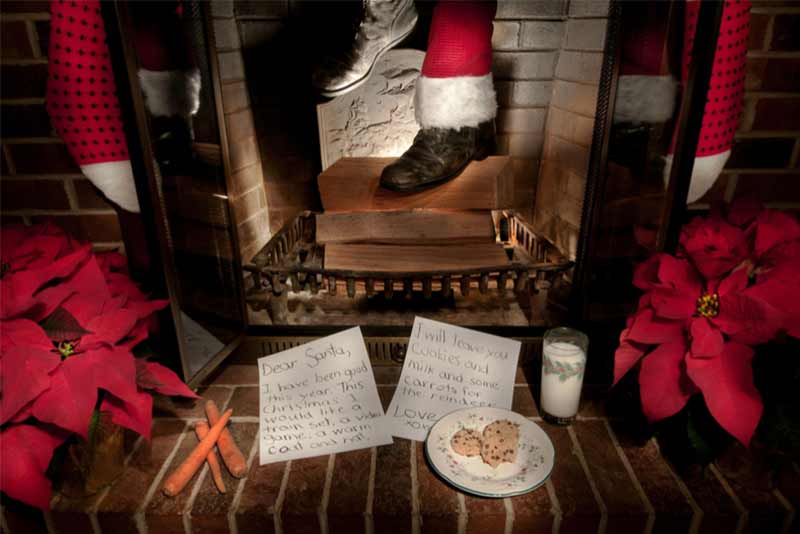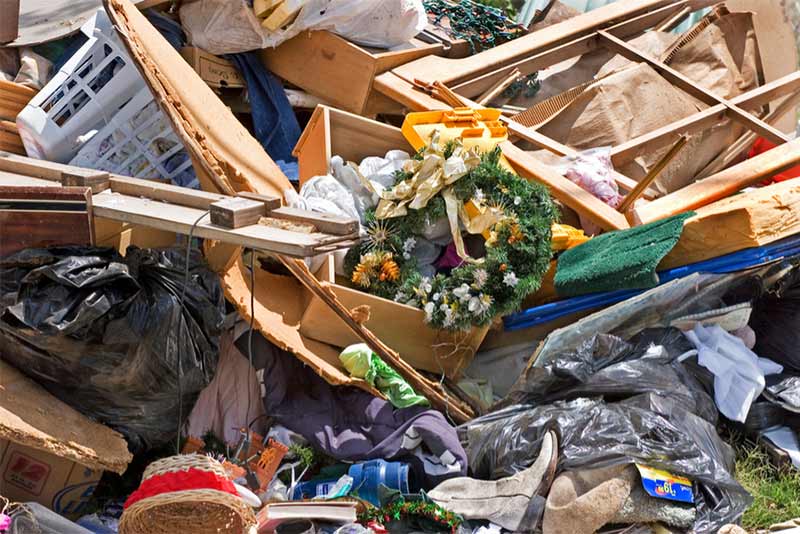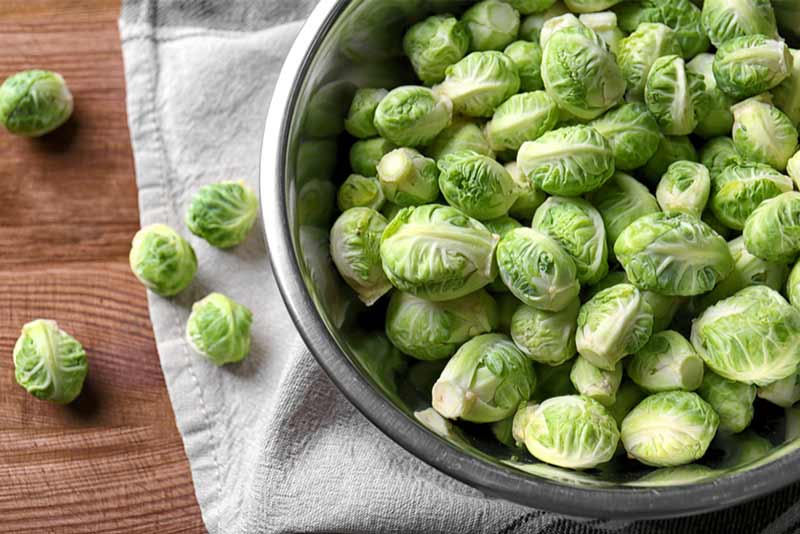How much waste does the festive season create?
Christmas may be the most wonderful time of the year, but it’s also one of the most wasteful, creating a rise in the volume of waste materials being produced and disposed of during this busy season. Much of this, unfortunately,
is sent to landfill where it damages the environment. With the Christmas period being full of tradition and celebrations, it’s no surprise that it leads to a monumental amount of waste being produced every time it rolls around.
 ?
?
As an example, the average UK adult is said to spend around £330 buying Christmas presents, and the average child receives 16 gifts in total. With Christmas being celebrated in many countries around the world, and the world’s population
standing at 8.2 billion people (as of December 2024), that’s a lot of bubble wrap, wrapping paper, ribbons, bows, and name tags that need to be disposed of after these gifts have been excitedly ripped open! Add to this the
one billion Christmas cards being sold in the UK alone each year, and the 17.2 million Brussels sprouts that go uneaten, and that’s even more sprout wrapping paper waste that needs to be disposed of correctly, and as environmentally-friendly as possible.
As the
statistics show, in the UK alone we create 30% more waste than usual during
the festive period, and this includes two
million turkeys and six million Christmas trees. These are shocking amounts and
they show that something has to be done by both businesses and consumers to
reduce our impact on the planet. The more waste we send to landfill the more
methane and carbon dioxide (CO2) that gets released into the air, and the more
the temperature of the Earth rises. This increases the likelihood of natural
disasters happening across the world such as droughts, floods and hurricanes.
These can have a devastating effect on habitats as is evidenced by California’s
wildfires. In 2018, the Camp Fire in California claimed 85 lives, destroyed 18,000 structures and caused 16.5 billion dollars of damage.)

Plastic waste also ends up polluting our seas and oceans when it’s blown away from landfill sites. With the ocean removing CO2 from the air we breathe and providing a home for 2.2million aquatic species, it's vital that businesses (some of the largest producers of waste) do all they can to protect it.
Sadly, climate change is a concern that isn’t going away anytime fast. However, businesses can prevent their carbon footprint by recycling more of their waste. With the extra waste being produced by pubs, restaurants,
retailers and manufacturers during the Christmas season, now is the perfect time to start making a difference. In this guide, phs Wastekit will be sharing statistics of how much waste is created by the festive season,
as well as providing tips for businesses to reduce their environmental impact at Christmas…
 ?
?
Facts and statistics: waste during the festive season
Christmas
trees and decorations
A total of 6 million Christmas trees are said to be discarded every year. According to a survey from 2017, 14% of people said that they would be binning their artificial Christmas tree, rather than reusing it the following year.
Many Christmas decorations, such as plastic and glass baubles and tinsel can’t be recycled, so you should reuse them or donate them to charity shops when you no longer want them.
Wreaths can also be recycled as long as they’re made from natural materials (like ivy, holly or fir tree clippings) and they’re not covered in excessive amounts of glitter!
The Carbon Trust calculates that the carbon footprint of a 2-metre high real Christmas tree is 16kg of carbon dioxide (if it ends up in landfill).
WRAP estimates that the weight of the real trees that are thrown away after Christmas weight in at around 160,000 tonnes.
Food and
beverages
The amount of beer drank by Brits over Christmas could fill 57 Olympic sized pools. According to Unilever, 4.2 million Christmas dinners were wasted in the UK in 2014. This figure equates to approximately 263,000 turkeys, 7.5 million mince pies, 740,000 slices of Christmas pudding, 17.2 million Brussels
sprouts, 11.9 million carrots and 11.3 million roast potatoes!
The Brussels sprouts wasted at Christmas could power a home for 3 years.
If all Christmas food waste was recycled into energy, it could power the average medium-sized home for 57 years. The process of turning food into energy is called Anaerobic Digestion (AD).
The UK is estimated to use 300 million plastic cups and straws at Christmas parties.
Shopping and
gift giving
Each year, the UK spends a combined total of around £700 million on unwanted presents!
227,000 miles of wrapping paper is thrown away each year. Instead of being recycled, 1 billion Christmas cards are also put in the bin.
300,000 tonnes of card packaging is said to be used during the festive season, which is enough to cover London’s Big Ben almost 260,000 times.
Around 6.8 million iOS and Android devices are activated on Christmas day.
Most wrapping paper is suitable for recycling, unless it is a shiny metallic or glitter variety. You can easily check this by scrunching the paper; if it stays in a ball shape, it should be recyclable.
In 2017, it was estimated that 114,000 tonnes of plastic packaging would be thrown away and not recycled in the UK at Christmas.

How to reduce your business’s waste at Christmas
Make the switch
to recycled packaging
As we move into the New Year, you should be housing as many of your products in recycled packaging as possible. For loose products, such as fruit, vegetables, nuts and sweet treats, many retailers have now opted to use zero
packaging, and this is something you can encourage your customers to get on board with by giving them a small discount if they bring in their own bags. If you offer a gift-wrapping service in store, you can also easily
make the switch to recycled wrapping paper and tissue paper.
Give away
any leftover food
For pubs, restaurants, coffee shops, hotels and any other businesses that may have fresh unused food left at the end of the working day, let your employees have their pick of what they want to take home with them
or donate it to homeless charities. Food items that are past a certain Best Before or Use by Date can’t be sold (even if they’re still suitable to eat), so give them to a better home where they’ll be greatly appreciated
instead of simply throwing them away.
Tesco is just one of the businesses leading the way, having pledged to donate all of their store’s unsold food to local charities and community groups by the end of 2017. At their last count, they had donated enough food to provide 16 million meals to over 6,000 charities and community groups across the UK.
 ?
?
Reuse or
recycle your Christmas tree
Although they’re beautiful and they give your home or workplace an authentically festive feel, one of the issues with real Christmas trees is that according to statistics, 250 tonnes of them are thrown away after Christmas
when they could have been used for compost. To reduce the environmental impact of this, chip and recycle your tree after use, or use a commercial Christmas tree provider that does.
Artificial Christmas trees can also be damaging to the environment because they’re made from various materials, which means that they can’t be recycled. Fortunately, they can be reused for years to come, and you
can lower your business’s carbon footprint by doing so. If you hire your tree from an external company, simply check if they reuse and recycle them.
Reach
customers through digital
As early as September and October, most hotels, restaurants and retailers are already putting up their festive signage to advertise their offers in the run-up to Christmas day. These should be recycled when they’re
no longer needed or put in storage to be used again next year. Additionally, reduce your paper waste by not sending direct mail to your customers. Instead target them through digital channels, such as email and various
social media platforms.
Reduce your impact with phs Wastekit
To find out how phs Wastekit can help you to reduce your business’s waste and environmental impact through our range of waste
balers and compactors,
contact us or request your free Wastesaving
Audit.
Sources for statistics
·
https://www.housebeautiful.com/uk/lifestyle/news/a1158/uk-christmas-waste-revealed/
·
https://www.independent.co.uk/life-style/christmas/food-drink/over-4-million-christmas-dinners-are-thrown-away-each-year-a6757211.html
·
https://www.forgeskiphire.co.uk/blog/christmas-food-waste-knowing-the-figures/
·
https://www.tomango.co.uk/thinks/30-fun-facts-about-christmas-to-impress-your-friends/
·
https://www.recycleforwales.org.uk/what-to-do-with/christmas-decorations-0
·
https://www.independent.co.uk/life-style/christmas/christmas-waste-total-wrapping-paper-food-scraps-packaging-sticky-tape-study-a8119821.html
·
http://www.wrap.org.uk/content/tis-season-be-aware-recycling
·
https://news.sky.com/story/amount-of-waste-thrown-out-at-christmas-unacceptable-polls-finds-11171061
·
https://www.wcl.org.uk/uk-christmas-gift-to-the-environment.asp
·
https://refood.co.uk/christmas-food-waste/
https://www.theguardian.com/environment/2014/jan/03/christmas-tree-recycling-london